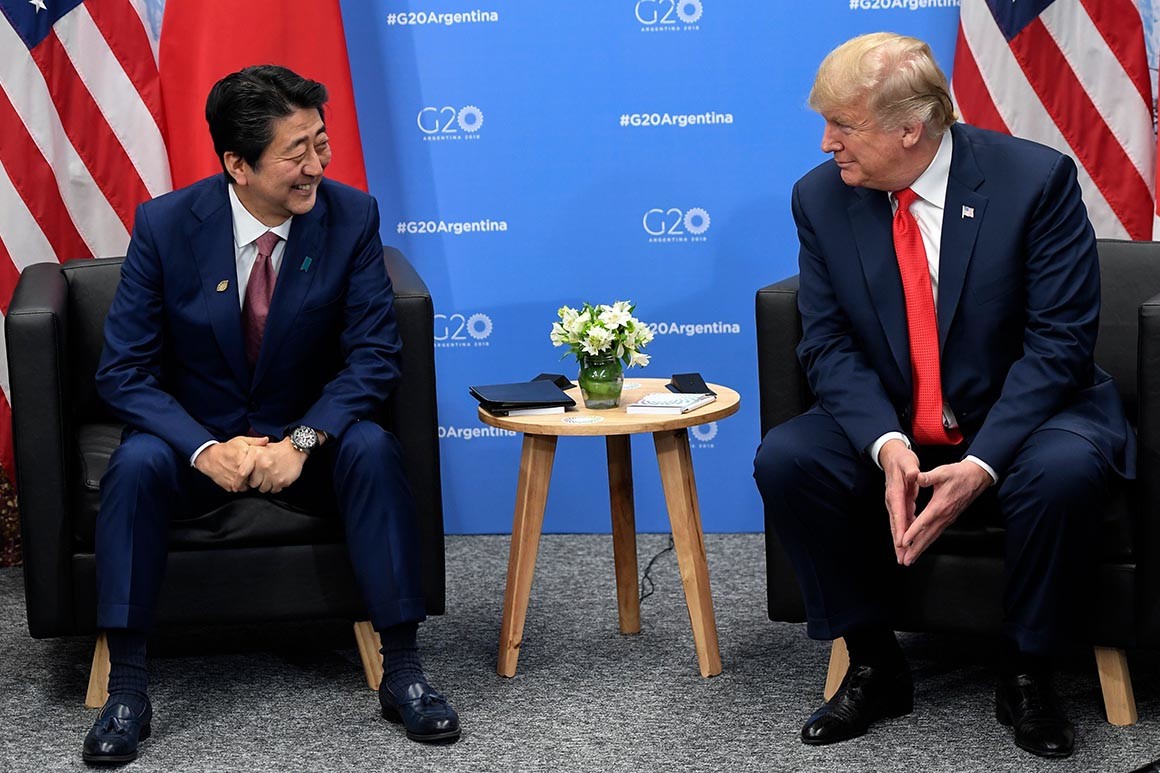Biarritz, August 26: Japan and the United States have on Sunday agreed in principle to core elements of a bilateral trade agreement that Tokyo’s Prime Minister Shinzo Abe and American President Donald Trump hope to ink a deal next month in New York.
According to Reuters news reports, the deal, if finalized, would deescalate a trade spat between the two allies. US trade envoy Rober Lighthizer has stated the agreement includes digital trade, industrial tariffs, and agriculture and that the auto tariffs would remain in place.
Trump said Tokyo had nodded to purchase excess American corn. Abe referred to a possible purchase of American corn, saying the private sector would tackle that.
“It’s a very big transaction, and we’ve agreed in principle. It’s billions and billions of dollars. Tremendous for the farmers,” Trump told reporters of the deal while a joint announcement with Abe on the sidelines of the G7 summit in France’s city of Biarritz.
ABe said additional working would remain same but however, expressed optimism it would be fulfilled by times of UNGA next month.
“We still have some remaining work that has to be done at the working level, namely finalizing the wording of the trade agreement and also finalizing the content of the agreement itself,” he said, through an interpreter.
“But we would like to make sure that our teams … accelerate the remaining work for us to achieve this goal of realizing the signing of the agreement on the margins of the U.N. General Assembly at the end of September.”
Lighthizer noted Japan buys around $14 billion worth American agriculture products, saying the deal would disclose markets to more than $7 billion of such US products. He said pork, beek, ethanol, wine, dairy products, and wheat would all benefit from this.
“It will lead to substantial reductions in tariffs and non-tariff barriers across the board,” he said, while not going into the details of e-commerce and industrial aspect of the agreement.
“The Japanese private sector listens to the Japanese public sector very strongly… It’s a little different than it is in our country perhaps,” Trump said.
“We believe that there is a need for us to implement emergency support measures for the Japanese private sector to have the early purchase of the American corn,” he said. “So that’s why, against such backdrop, I do think that there is a possibility for us to cooperate to address this issue.”

